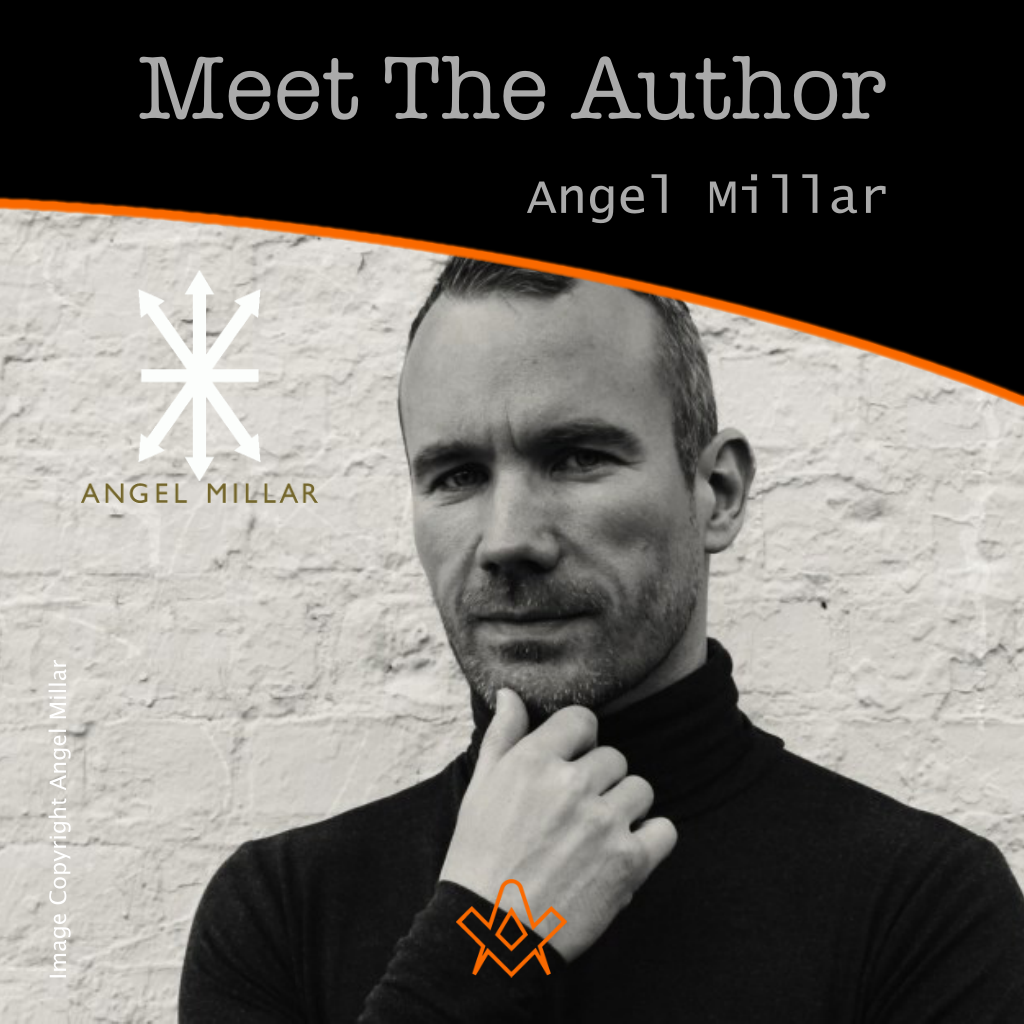This month I am delighted to interview Angel Millar – author of five books on Freemasonry, esotericism, and world spiritual and initiatory traditions.
He is also a hypnotist and personal growth mentor with more than two decades of experience in meditation and related mindfulness training techniques, over a decade of experience in the martial arts, and several years as a public speaker on self-development, symbolism, and spirituality.
Philippa Lee : Hi Angel, thanks so much for taking the time to answer some questions.
You’ve written five books on world spiritual and initiatory traditions. The first three were scholarly and meticulously researched histories. However, your two recent books were concerned with the individual path of spiritual self-development and embodying one’s full potential. Though they have the same level of academic knowledge, I feel the more personal aspect gives them a deeper clarity and meaning.
So, if we could start by asking a bit about your background. When did your interest in comparative religion and spiritual traditions begin? And what pathway did that take for you?
Angel Millar: Having grown up in a very secular family, in England, I began to take an interest in spirituality when I was around 15 years of age. I bought a book on astral projection and the classical elements and tried the exercises out but didn’t really understand it.
A couple of years later, I came across an esoteric bookshop on the outskirts of Kent, a few miles from my home. I ended up spending most of my time there, hanging out with the owner and with other young individuals, who were all into neopaganism.
I was reading a lot, including the work of Carl Jung and Mircea Eliade as well as that of practitioners such as Israel Regardie and Aleister Crowley. I was interested in myth and religion. And, although I had no connection to it, I had already developed an interest in Freemasonry and had got hold of the Royal Arch and Rose Croix degrees (the latter of which I purchased from a used bookstore in Greenwich market). I was also drawing and painting and writing a little bit of poetry.
I became disillusioned with the scene around the shop after a year or so but was still hanging out with like-minded individuals, one of whom – a female poet– was quite inspiring to me. We would go to the local woods and meditate, make incense, and try to be creative. Overall, I think it was healthier than going to nightclubs (though I had done that early on as well).
Around the age of nineteen, I was initiated into the Illuminates of Thanateros (I.O.T.) which, at the time, was a very serious chaos magic Order with quite a dark aesthetic and worldview. I was the youngest member of the London temple by about eight years and quite possibly the youngest-ever member of the Order at that time. It was an intense experience. Personally, I was mostly focused on exploring trance states, pushing the limits of the mind, and creating art.
The members were intelligent and quite creative. Charles Brewster– one of the London members – put on a series of talks in Bullfrog’s Cafe in Greenwich, which I attended. And other members spoke at a regular event called “Talking Stick”. There were only eight of us in the London temple at that time. Four of us became authors. One was a translator of a well-known book on sigil magic. And two were avant-garde, esoterically minded musicians. It’s rare to be in a group where people are that prolific and, despite some misgivings, I’m glad I met a few of the people who were part of the temple at that time.
However, a year after joining, I discovered that my lungs were bleeding. I had trouble breathing one night, during the summer, and it felt like my lungs were blocked. A couple of mornings later, I spat into the sink and all this blood came out. My life had been intense, quite transient, and unstable. In different ways, I had been pushing myself too hard. At that moment, I decided to change everything. I quit the I.O.T. and started attending Chelsea College of Art and Design. A little later, I began staying in a Benedictine monastery every summer. A couple of years after that, I began practicing Nam Pai Chuan Shaolin Kung Fu.
PL: You have mastered a wide range of arts – ranging from Fine Art to Martial Arts, can you explain the interesting archetypal connection for us?
AM: During the 20th century, the influential philologist Georges Dumézil claimed that ancient Indo-European societies were divided into three classes: priests, warriors, and craftsmen and herders. More recently, historian David W. Anthony has suggested that these castes may have constituted “three age grades”, with the individual becoming a craftsperson or herder, etc., as a child, then becoming a warrior as the body matured and was strong, and then, as the body weakened in later life, becoming a priest (or what I’m calling the “magician”, from the Old Persian word magus or magi (plural), signifying members of the priestly class).
We find this trinity of craft, warrior arts, and spirituality appearing throughout time and across cultures. The ancient Greek philosopher Plato spoke of education through music (craft), wrestling (the warrior art), and philosophy (which we might liken to spirituality). In Japan, the Samurai class was molded by Zen Buddhism, and Samurai warriors often practiced other arts besides the sword. Miyamoto Musashi, for example, was renowned both for his fighting art and for his calligraphy and painting. The viking Egill Skallagrimmson was, likewise, a feared warrior and a renowned poet. In Islam, ‘Ali is regarded as both the archetypal warrior and mystic. Notably, in every Persian martial arts gymnasium, a picture of ‘Ali is hung, and their performances are modeled on Sufi practices, accompanied by music, and singing – so, again, you have the warrior art, spirituality, and craft.
And, of course, we see the fusion of martial arts, art, and spirituality in Sufism and Freemasonry. Around the 12th century, the Sufis took the structure of the craft guilds, adopted Islamic chivalry (futuwwa), and brought these together with Islamic mysticism. Freemasonry, likewise, brings together the symbolism of the guild of stonemasonry, aspects of chivalry (think of the Tyler with the sword, the symbol of the sword pointing at the heart, or Masonic degrees such as The Knight of The Red Cross), and the spiritual, with its focus on what is beyond this world (e.g., God and “the temple not made with hands”).
The Indo-Europeans, we might note, were peoples living between 5,500 to just over 4,000 years ago (from whom many of the world’s contemporary languages (including English) are descended). It is curious, and remarkable, that a tripartite system of culture and, quite possibly, initiation, can be found in various guises throughout history, and can be seen in Freemasonry in the 21st century. But it’s an archetypal pattern and one that will always repeat itself, especially in those individuals who seek to fulfil their potential, mentally, physically, and spiritually.
PL: You moved to the States in your late twenties. May I ask what prompted the move, was it primarily to further your martial arts practices – and do you miss England?
AM: It was really a coincidence. I had been thinking of moving abroad, but not to the U.S.A. A friend of mine had moved to New York a few years earlier, and when she returned to England for a visit, she invited me out. A few months later, I went to stay with her. I didn’t have much money and after about six weeks I had run out. Luckily, I had a few paintings on exhibit at a small gallery called The Red Dot Gallery in London and one of them sold, so, with that money, I was able to stay a little longer. I returned to England but moved permanently to the U.S. (with a few years in Canada) about six months later.
I miss the more historical side of England. I like the castles, old buildings, history, and traditional holidays and customs. But there’s much that I appreciate about the U.S.A. and about Americans. I always thought of New York as a very un-spiritual place, but that’s not true. I think spirituality is more alive in the U.S.A. than in Europe, probably because religion is more alive here. Soon after I arrived, I found a few spiritual bookshops, which I would frequent. I would also go to meditate in the Open Center’s meditation room. And I started practicing Kung Fu early in the morning in Chinatown. I was also painting a lot and doing a little writing.
Then, in 2001, I was initiated into Freemasonry. Soon after becoming a Master Mason in 2002, I began painting some tracing boards (which are now in the collection of the Chancellor Robert R Livingston Library and Museum of the Grand Lodge of New York) and researching into the Craft. I gave some talks and began writing about Freemasonry. Not many people were doing that at that time and, undoubtedly, partly for that reason, my work was quite well received.
PL: Your first book, Freemasonry: A History (published jointly by Greenwich Editions, London, and Thunder Bay Press, USA) was released in 2005. This was followed nearly a decade later by Freemasonry: Foundation of the Western Esoteric Tradition published in 2014. Both of which are superb, and the research is meticulous.
Could you tell us a bit about the progression of your writing career?
AM: As you mentioned, my first three works were histories, with the third exploring largely unknown connections between spiritually radical Freemasons and fringe Masons and Muslim intellectual radicals, largely between 1850 and 1930.
It was important for me to write history before going in a more philosophical and practical direction. Freemasonry has long suffered from authors putting forth new theories that ignore history and evidence and, instead, rely on reinterpreting – and misinterpreting – some of the symbols of the Craft (while ignoring others). Unfortunately, this still happens today.
Understandably, there’s a bit of a backlash in Freemasonry against such writing and, with that, has come the suggestion that Freemasons should only write history, even if that’s the history of their own lodge.
Yes, it’s important to be able to evaluate evidence and to be grounded in reality. But Freemasonry is a quest for self-growth, spirituality, and understanding the relationship of the sacred and the mundane. The Masonic initiation makes us think about our lives, the consequences of our actions, our mortality, and about God and what may lie beyond death. Especially in the so-called “higher degrees” there’s an influence of Neoplatonism, Rosicrucianism, alchemy, Hermeticism, and Kabbalah.
So, I think it’s essential that Freemasons are engaged in thinking and contemplating ideas especially as they relate to spirituality and meaning. That’s one reason why I wrote The Three Stages of Initiatic Spirituality and The Path of The Warrior-Mystic. It can’t all be history. At a certain point, you have to think about meaning itself. And you have to offer your insights and understanding about life.
PL: Do you have any tips you can share with aspiring authors?
AM: Yes. When you write, you have to give everything. A lot of authors hold back. They effectively rewrite the same book over and over again, swapping out a chapter here or there to make it look different. Or they’ll write about different traditions, but always at a beginner level.
Because they never really go deep, they never have any real insights to share. Instead, they hint that they have secret knowledge, which they never quite express. I see this a lot with lecturers as well. They’ll give a talk on the history of a “secret”, esoteric tradition (and that history they’ve usually cobbled together from a few books) but they don’t have any insights into that tradition because they haven’t thought deeply about it (even if they’re practicing it).
They want to present themselves as experts – and maybe they are. But the world is full of experts. Instead, what we need is that less common thing called “mastery”. Expertise means following a map; mastery means going into the unknown – and then returning to guide others.
PL: The book I personally found most fascinating was The Crescent and The Compass – this probably reflects both my passion for travel in Muslim countries and depth of interest in the traditions of Islam, particularly Sufism. You describe it as “exploring historical links between some Muslim thinkers and Freemasonic spiritual radicals from the 1850s to the early 1900s”. I must agree with New Dawn magazine’s description of it as “a highly significant work… of extraordinary importance in this time of cultural and even spiritual conflict.”
How was the book received in both the worlds of Freemasonry and Islam?
AM: I received positive feedback from both Muslims and Freemasons, and the reviews – such as by New Dawn – were favorable. However, it’s probably quite an obscure book, especially considering the importance of the subject today.
It’s the only book that I’m aware of that explores this history – at least in the English language – and it looks at everything from the initiation of Muslim intellectuals, such as Jamal al-Din al-Afghani, to the founding of such fringe Masonic organizations such as the Order of Zuzimites and the involvement of such occultists as Aleister Crowley in fringe Masonry and Sufism (and why he perceived them to be linked, at least, philosophically).
Effectively, the book is really more than about the curiously links between Masonic spiritual radicals and Muslim intellectuals; it’s a journey through the forgotten and strange relationship of the West and Islam, and I think that is something that more people should understand.
PL: Your fourth book, The Three Stages of Initiatic Spirituality: Craftsman, Warrior, Magician (Inner Traditions, 2020) demonstrated your break away from purely historical subjects. Your own philosophy and self-development are prominent, which is great for the reader to connect with. You “explore the symbolism and mythology of spiritual, martial arts, and related traditions from as far afield as Europe, Asia, and the Middle East and describe several lesser-known meditation techniques and practices”.
The concept of archetypes is fascinating, can you tell us more about it?
AM: Today, of course, we’re encouraged to specialize. If you want to get into Harvard (and it’s probably the same with Oxford University in England), you have to be incredible at one thing, not excellent across the board. In regard to career, the prevailing advice is that you need to find a niche or, better still, a niche within a niche. And, again, we’re told that we can be a “geek”, absorbed in book learning, or we can be a “jock” who’s fit and muscular. But we’re not supposed to be intelligent and physically strong, and we’re certainly not supposed to be spiritual and creative as well – perhaps, because we’ll be less easily manipulated if we are. We’re supposed to find a box and fit into it, socially, intellectually, and so on. We’re supposed to be a label.
Developing the mind, body, and spirit, and being able to be adaptable and creative in different areas, is essential. And, like it or not, this will be increasingly evident as the 21st century progresses, and we are faced with all kinds of new challenges and problems in our societies – not least of all a declining standard of living and, as such, higher crime. The model of craftsman, warrior, and magician (which, again, we find throughout human culture, from Indo-European peoples, through Plato, the samurai, and Sufism, to Freemasonry) gives us a symbolic, mythological, and historical template for such self-development.
The Three Stages of Initiatic Spirituality is divided into three sections (one each for the craftsman, warrior, and magician), with several chapters in each section. In the first section, I explore Craft Freemasonry, alchemy, Kabbalah, Islamic neoplatonism, ancient Greek philosophy, and the notion of the cycle of the Ages from various perspectives (Hindu, ancient Greek, Norse, modern occultism, etc., as well as through such thinkers as Ibn Khaldun, Oswald Spengler, Jean Gebser, and Aleister Crowley).
In the second section, I explore the “war in heaven” or the internal struggle, the mythic hero and dragon-slayer, martial arts, inner alchemy, the warrior ritual, and meditating on mortality.
In the third section, I explore sexual mysticism and magic, the union of opposites, Jung’s concept of anima and animus, chaos magic, consciousness, and “mind metaphysics.”
PL: To complement your books, you also offer mentoring to those who are seeking self-realisation. You obviously walk the talk, perhaps you could explain a bit about how you work with clients?
AM: Sure. Yes, I use mentoring and/or hypnosis with clients. Some people want advice for a particular business or personal challenge, or they need help formulating a plan of action and, perhaps, someone who’s going to hold them accountable for pressing forwards towards their goal. Others want hypnosis. With both, there’s an aspect of discussion, of course. You need to really dig into the issue and unearth what the client isn’t quite able to see.
A lot of consulting hypnotists work on specific things such as quitting smoking, but I mostly use it to help people move forward in their life journey. Although it’s not well-known, a lot of world-class athletes (Muhammad Ali, Tiger Woods, Mike Tyson, and so on) used hypnosis to help them succeed. I tend to use it more in that vein, only applied to a lot of different life circumstances.
Incidentally, when I studied hypnotism (under the auspices of the National Guild of Hypnotists in the U.S.A.), I found that I was already familiar with a lot of the techniques, not least of all from martial arts. As part of my Kung Fu training, I practiced a lot of techniques that require a lot of mental control as well as physical skill, such as laying on a nail bed or breaking a slab of concrete with the hand (which will cause serious damage to the body without proper mental and physical training over a long period).
PL: Thank you again – one last question: what is next for you?
AM: I’m always working on at least a couple of books. Right now, I’m wrapping up some essays to go with a long prose poem on the theme of the initiatic path. And I’m working on two other book projects, both of which are about spirituality and self-development to varying degrees. I’ll also be giving more talks around the U.S.A. on self-development, symbolism, and initiation. And, of course, I’ll be continuing to develop myself mentally, physically, and spiritually.
Check out Angel’s website here: https://angelmillar.com/
Article by: Philippa Lee. Editor

Philippa Lee (writes as Philippa Faulks) is the author of eight books, an editor and researcher.
Philippa was initiated into the Honourable Fraternity of Ancient Freemasons (HFAF) in 2014.
Her specialism is ancient Egypt, Freemasonry, comparative religions and social history. She has several books in progress on the subject of ancient and modern Egypt. Selection of Books Online at Amazon

The Path of the Warrior-Mystic: Being a Man in an Age of Chaos
By: Angel Millar (Author)
Takes you on a journey to cultivate yourself mentally, physically, and spiritually to become the archetypal Higher Man
• Explores the archetypal and classical male ideal found in ancient societies around the world
• Examines some of the problems facing men in the world today and shares practices to develop yourself in the face of these problems
• Provides techniques for developing your thinking and focus, overcoming fear, relaxing tension in your body, and developing a self-image more appropriate to who you are and aspire to be
Ancient and classical societies have always had an ideal of manhood. In Japan, the samurai cultivated not only the art of the sword but also poetry, calligraphy, and spiritual practice.
In Confucianism, the ideal man was the Chun-Tzu (the Higher Man), who cultivated both the arts of war and the arts of peace. And in medieval Europe, the knight lived by the comparable code of chivalry. Such men, considered both warriors and mystics, exempli ed wholeness. Yet today, men exist in a chaotic world without role models, guidance, or a sense of the sacred masculine.
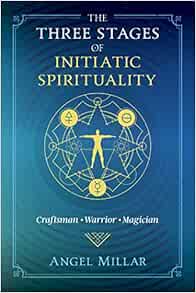
The Three Stages of Initiatic Spirituality: Craftsman, Warrior, Magician
By: Angel Millar
A detailed guide to the three successive initiatic archetypes: Craftsman, Warrior, and Magician
• Investigates the symbolism, rituals, and metaphysical aspects of each initiatic archetype, from the alchemy and shamanism of the craftsman, to the subtle energy work of the warrior, to the sex magic practices and Higher Self work of the magician
• Shares meditations, practices, and transformational techniques for each archetype
• Investigates the similarities between contemporary Western occultism, from Crowley to Chaos Magic, and the “positive thinking” mind metaphysics movement
Exploring the craftsman, warrior, and magician archetypes–three vocations that echo the traditional tripartite division of society–Angel Millar reveals how these archetypes represent the three successive stages of spiritual growth in an individual’s life. He shows how they provide structure for the initiatory process to develop one’s mental, physical, and spiritual potential.
As craftsman, the individual experiences “mnemonic” initiation: the cultivation of memory as well as language. As warrior, “somatic” initiation: development of the physical body and cultivation of the spirit body. And as magician, “gnostic” initiation: cultivation of the self and manifestation of the Higher Self.

The Crescent and the Compass: Islam, Freemasonry, Esotericism and Revolution in the Modern Age
By: Angel Millar
A timely survey of radical spirituality and political activism in Islam and the West over the last century and a half, The Crescent And The Compass uncovers numerous previously unknown and unexplored connections between European, American, and Middle Eastern movements, organizations, secret societies, and thinkers.
Subjects covered include Sufism and Islamic Gnosticism; Muslim revolutionaries and Freemasons; Rene Guenon, fringe Masonry, Traditionalism, and Islam; the early history of the Shriners; the Ancient Order of Zuzimites; Charles, Prince of Wales and Islamic spirituality; and militant anti-Freemasonry.

Freemasonry: Foundation of the Western Esoteric Tradition
By: Angel Millar
n the early 18th century the Masonic fraternity emerged to change the shape of the Western esoteric tradition forever. Within a few decades the fraternity had spawned numerous esoteric societies that claimed to communicate with spirits, teach the secrets of alchemy, and to perform rituals of healing.
During the next century the still-surviving Masonic Rosicrucian society was established, attracting the founders of the Hermetic Order of the Golden Dawn – William Wynn Westcott and S.L. MacGregor Mathers – and Theodor Reuss, co-founder of the Ordo Templi Orientis (O.T.O.), among others. Freemasonry: Foundation of the Western Esoteric Tradition explores the history of Western esotericism, beginning with the early Masonic Ritual, and its symbolism of natural law and death, essential to understanding the Craft, high-Degree Freemasonry, and the contemporary Western esoteric tradition.
Other subjects explored include: – Mystical Masonic societies, practicing séances, alchemy, healing, etc.; – The Masonic influence on the Hermetic Order of the Golden Dawn and the O.T.O.; – Masonic Lodges practicing Roman Catholic mysticism; – The contemporary Masonic-Rosicrucian society; – Aleister Crowley’s adventures in Freemasonry; – The Rose Croix Degree; – Freemasonry and alchemy; – Wicca and Masonic symbolism. Freemasonry: Foundation of the Western Esoteric Tradition includes a series of 12 rare etchings by Hejonagogerus Nugir, originally published in Freymäurerische Versammlungsreden der Gold- und Rosenkreutzer des alten Systems (Amsterdam, 1779), presented here as plates. Fifteen chapters. Illustrated, with two appendices, plus bibliography. Indexed.

Freemasonry a History
By: Angel Millar
With their origins and rituals shrouded in mystery, many people believe Freemasons are an all-powerful secret sect, covertly manipulating the world. Others simply think Freemasons are a benevolent fraternal society with a penchant for wearing funny hats and indulging in odd initiation ceremonies.
Freemasonry: A History examines this fascinating organization throughout history, shedding new light on old myths like their relation to the Knights Templar and their involvement in the American Revolution. Filled with illustrations, photographs and insightful details, this comprehensive book digs deep into this mysterious international brotherhood that includes Sir Isaac Newton, Winston Churchill, George Washington, Buzz Aldrin and Count Basie as members.
Recent Articles: book reviews
 Book Review - Taken by Surprise Never again will a Freemason be caught out by a last-minute request to make a response. Should you be given just a few moments to prepare for a speech, you will readily be able to locate, within the pages of this book, a statement that will allow you to enhance any short comment you make, giving it immediate relevance. |
 Connell Donnelly, a young Church of Ireland priest in Cork joins a Masonic lodge and finds friendship, accepts challenges to become a better man, and learns to serve God more fully. |
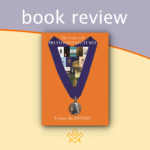 Book Review - The Collected, Prestonian Lectures Only one Masonic lecture a year receives the official sanction and authority of the United Grand Lodge of England. Grand Lodge appoints a Prestonian Lecturer each year, and he gives a paper on a subject of his own choosing. |
 Book Review - Making A Master Mason - The Masonic Tutor's Handbooks Vol 4 The relationship between a Master Mason and the Brethren of their Lodge is the traditional way that our Craft’s traditional wisdom is passed on. |
 Book Review - Freemasonry From the 1st to the 33rd Degree In a remarkable endeavour to bridge the historical and linguistic gap between French Masonic manuscripts and the English-speaking Masonic community, Kamel Oussayef unveils his latest translation, "Freemasonry From the 1st to the 33rd Degree". |
 Book Review - Crafty Characters "Crafty Characters" by Mike Neville delves into the Freemasons' clandestine legacy, uncovering a history marred by scandal and uplifted by heroism. This gripping account reveals the Masons' impact on history, from dark conspiracies to noble deeds, challenging perceptions of one of the most secretive fraternities in history. It's a thrilling exploration of power, morality, and influence, condensed into an epic narrative. |
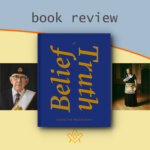 Book Review - Belief and Truth In "Belief & Truth, Inside the Freemasons," Caitlin Chescoe unveils the mystique of a three-century-old brotherhood. Born into its legacy, Chescoe challenges the 'old boys club' stereotype, presenting a tapestry woven with the personal tales of both male and female Freemasons. Accompanied by Camilla Brown's insightful essay, the book delves into Freemasonry's societal interplay with gender, religion, and charity, enriched by evocative portraits and archival treasures. |
 Book Review - Weekly Masonic Doubts István Horváth's 'Weekly Masonic Doubts' illuminates Freemasonry's enigmas through 52 insightful essays. A thought-provoking guide, it invites Masons and non-Masons alike to explore profound traditions and modern challenges, fostering dialogue and enlightenment on the timeless journey within the Craft. |
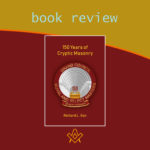 Book Review - 150 Years of Cryptic Masonry "150 Years of Cryptic Masonry" transcends a mere historical account; it is an immersive odyssey into the heart of an esoteric brotherhood. With reverent detail, it bridges the ceremonial rites of Craft and Royal Arch Masonry, unveiling the solemn grandeur of the Cryptic degrees. Through vivid photographs, intricate tables, and expansive maps, the reader is not just informed but transported across time and tradition. This volume celebrates the architects of Masonic ritual, offering an enlightening tapestry that will captivate both the Masonic initiate and the curious scholar alike, illuminating the path of Masonic wisdom across a century and a half. |
 Book Review - A Masonic Evolution Explore the dynamic transformation of Freemasonry in Michael R. Poll's 'A Masonic Evolution.' As the world shifts, so does the ancient fraternity, moving from club-like gatherings to profound seekers of enlightenment. Dive into the past, present, and future of Masonry and its adaptation in the digital age. |
 Book Review - The Rare Books of Freemasonry This book is a comprehensive study of the rare books of Freemasonry, including their history, significance, and symbolism. It is an essential resource for anyone interested in the history and philosophy of Freemasonry. The author, Lionel Vibert, was a leading expert on the subject in the early 20th century. |
 Book Review - From Entered Apprentice to Kabbalist: The Kabbalistic Secrets of Freemasonry Delve into Kwame Agyare's 'The Masonic Journey: Apprentice Edition', a captivating exploration of Freemasonry's core values and rituals. Agyare, a 32nd degree Freemason, unveils the profound wisdom and transformative power of the Craft, guiding readers on a journey of self-discovery, brotherhood, and service to humanity. A must-read for seekers of enlightenment. |
 Book Review - The Knights Templar Dive into 'The Knights Templar: A Captivating Guide to a Powerful Catholic Military Order and Their Impact on the Crusades' - a thrilling exploration of the legendary warrior monks. Discover their battlefield triumphs, financial prowess, and enduring influence. Unearth secrets of medieval history and the Crusades in this riveting account. A must-read for history enthusiasts! |
 Book Review - Essay on The Mysteries and the True Object of The Brotherhood of Freemasons Dive into the enigmatic world of Freemasonry with our riveting review of 'Essay on the Mysteries and the True Object of the Brotherhood of Freemasons.' Uncover ancient secrets, explore symbolic philosophies, and decode the fraternity's enduring allure. A must-read for history buffs and mystery seekers! |
 Book Review - Ritual, Secrecy, and Civil Society Unlock the mysteries of Freemasonry with 'Ritual Secrecy and Civil Society.' Explore its historical evolution, societal impact, and philosophical underpinnings. Dive into this riveting narrative that illuminates the clandestine world of Freemasonry like never before. Your journey into the heart of secret societies starts here! |
 Book Review - More Light: Today's Freemasonry for Men and Women Uncover the secrets of Freemasonry in 'More Light: Today's Freemasonry for Men and Women.' This riveting exploration, from ancient mysteries to modern practices, breaks down gender barriers, delving into the inclusive, spiritual, and philosophical aspects of this enigmatic Order. Enlighten your understanding of the Masonic world with Julian Rees' masterpiece. |
 Book Review - The Arch and The Rainbow Unravel the mystique of Freemasonry with "The Arch and The Rainbow"! Penned by Reverend Neville Barker Cryer, this enlightening guide dives deep into the Mark and Royal Arch Mariner Degrees, answering your burning questions with masterful clarity. Dive in and discover the untold secrets of these fascinating Orders! |
 Book Review - The Fellow Craft's Friend by Kim March Unlock the mysteries of Freemasonry with 'The Fellow Craft's Friend' by Kim March. This comprehensive guide explores the Second Degree, tracing its roots from King Solomon's Temple to modern Freemasonry. Dive into the rich history, vibrant illustrations, and insightful interpretations in this must-read book. |
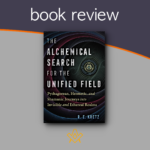 Book Review - The Alchemical Search for the Unified Field Unlock the secrets of the universe with 'The Alchemical Search for the Unified Field.' Journey through history, sacred geometry, and personal transformation as you discover the Philosophers' Stone within. This enlightening guide combines ancient wisdom and modern science in a quest for spiritual growth and self-discovery. |
 Book Review - The Shadow of Solomon: The Lost Secret of the Freemasons Revealed Are you intrigued by the enigmatic world of the Freemasons and their hidden influence on history? Do you ever wonder what secrets they keep locked away, known only to their inner circle? If so, prepare to embark on a thrilling journey into the heart of the world's most powerful and mysterious secret society. |
 Book Review - Confessions of a COVID Cleric Looking for a captivating and thought-provoking read? Look no further than "Confessions of a COVID Cleric" by Liam Thornton. Father Matthew is an ordinary Vicar, in an ordinary English village Parish. He is also a Freemason. |
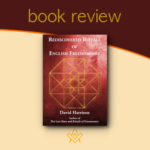 Rediscovered Rituals of English Freemasonry Dive into the mysterious world of Freemasonry with Dr. David Harrison's 'Rediscovered Rituals of English Freemasonry'. Unearth the true secrets of 19th-century Masonic rituals in this comprehensive review. Your journey into the intriguing history and esoteric practices of English Freemasonry starts here. |
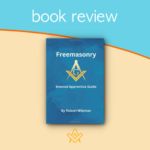 Book Review - Freemasonry: The Entered Apprentice Guide Freemasonry: The Entered Apprentice Guide by Robert Wileman is an insightful and comprehensive resource that aims to guide the reader through the early stages of their journey into the world of Freemasonry. Written by an experienced Freemason, this book delves into the essential aspects of the fraternity, from its historical origins and philosophical foundations to the symbolism and rituals that define its core. |
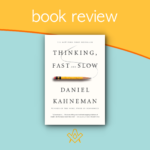 Book Review - Thinking, Fast and Slow Thinking, Fast and Slow is a ground breaking book by Nobel Prize-winning psychologist and economist Daniel Kahneman, which delves into the intricacies of human decision-making and cognitive biases. Published in 2011, the book is a culmination of decades of research by Kahneman and his late collaborator, Amos Tversky. It unravels the complexities of the human mind by exploring two distinct systems of thinking: System 1 and System 2. |
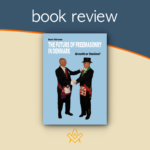 Book Review - The Future of Freemasonry in Denmark Danish Freemasonry differs in important respects from international Freemasonry. Despite a ban on political and religious interference which has been in place for many years, these two areas have had a profound impact on the situation in Denmark today. Things in Denmark have gone wrong. |
 Book Review - Doneraile Court: The Story of the Lady Freemason “The book brings to life the perilous night Elizabeth was caught spying on Freemasons in the middle of an initiation ritual, forcing them to make a life-or-death decision,” - By Kathleen Aldworth Foster |
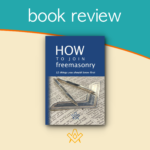 Book Review - How to Join Freemasonry Are you curious about the origins of the fraternal organization known as Freemasonry? Do you want to learn more about its impact on modern society? Look no further than our comprehensive guide, "How to join Freemasonry; 12 things you should know first" |
 Book Review - The Path of Freemasonry – The Craft as a Spiritual Practice In this practical guide, that details the spiritual lessons and rituals of Freemasonry as a step-by-step path of spiritual development and self-improvement for both Masons and non-Masons, men and women, alike. By Mark Stavish |
 Book Review - Dudley Wright: Writer, Truthseeker & Freemason Dudley Wright (1868-1950) was an Englishman who took a universalist approach to the various great Truths of Life, he travelled though many religions in his life and wrote about them all, but was probably most at home with Islam. |
 Book Review - What Just Happened? By Hugh O'Neill This series of booklets will attempt to describe in plain terms what was involved in conferring the three degree, a little of its historical and traditional basis, as well as the ideas presented to new members for their contemplation now and in the future. By Hugh O'Neill |
 Book Review - Managing The Future of Freemasonry The golden years of Freemasonry have passed with the departure of a world never likely to return. We cannot pretend that our membership problem will simply go away. If we are to rescue our order, we must take an objective look at ourselves and understand the society we now face. By Dr David J West |
 Book Review - Anderson's Constitutions - 1723 This book contains a faithful reproduction of the first edition of the Constitutions of the Free-Masons, printed in London in 1723. The text, word spelling and paragraph size has been maintained, original restored decorations have been used, and font and character typesets have been carefully replicated. |
 The Freemasons - The History, Nature, Development and Secret of the Royal Art, was originally published in German under the title 'Die Friemaurer' and in 1930 was awarded the 'Peters-Baertsoen Prize' by the Grand Orient of Belgium. |
 Book Review - Learning Ritual - An Easy Process This book presents a simple, effective, and time-proven approach to the memorization and performance of Masonic ritual. Learning Ritual: A Simple Process offers the reader a simple universal approach to any form of Masonic ritual whether it is Blue or Craft Lodge or that of a high degree. |
 Book Review - Over 300 years of Masonic Ritual This book celebrates the 300th anniversary of the founding of the Premier Grand Lodge in June 1717, by reviewing the basis of our workings from the earliest records to the formation of the United Grand Lodge of England in December 1813 and further. |
 Book Review - Seven Habits of Highly Successful Lodges Successful Lodges tend to share several common features. In this exciting new book, well-known author and speaker Tony Harvey draws on his extensive experience in different areas within Freemasonry to identify the key features most often seen in our strongest, happiest, and most attractive Lodges. |
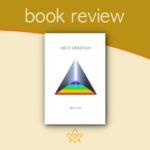 Ben Zion's awaited second book - This book contains a highly thought-provoking, or perhaps, more crucially a challenging narrative on the esoteric aspects of Freemasonry. There is no cautious conjecture, no frivolous ‘woo-woo’ approach, Zion dives straight in and makes us think…hard! |
 Book Review - Chapter & Verse: 100 years of Royal Arch Talks The publication of Chapter & Verse is in celebration of the centenary of Authors’ Chapter No. 3456; it takes the form of an anthology of some seventy-five talks presented in the Chapter. The spread of authors ensures divers interpretations of the Royal Arch narrative and dramatis personae. |
 Book Review - Freemasons: 555 Illustrations Written by one of the highest Masonic dignitaries, this unique book reveals the secrets of Freemasonry in inspiring images and quotes. |
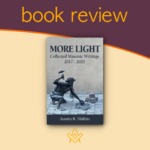 Book review - More Light: Collected Masonic Writings 2017-2021 This book delivers a collection of the author’s articles from RiteNow, the magazine of the Scottish Rite Valley of Pittsburgh, along with a history of Freemasonry – both worldwide, and in the Pittsburgh area specifically. |
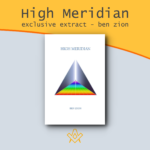 The eagerly anticipated sequel to the best-selling esoteric Masonic book of 2021 - "Whence Come You". High Meridian (The 'Light' Series Book 2) by Ben Zion - This book takes the reader to that next stage in a seeker's journey, and using Masonic imagery and symbolism as a necessary backdrop against which a deeper spiritual understanding can be found… |
 Book Review - 21st Century Rosicrucianism When the original Rosicrucian pamphlets were circulated in the early 1600s they sent a shockwave across Europe, instigating a surge of activity that changed the course of Western Esotericism. |
 Book Review - The Freethinking Freemason Tim Bryce's "The Freethinking Freemason" offers sage advice on how to run a Masonic Lodge, editorials on the future direction of the fraternity, and stories aimed at entertaining Masons. |
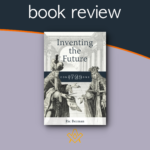 Book Review - Inventing the Future This book sets out those principles, considers the people involved and explores the framework within which their ideas were formed. And it discusses how the Constitutions evolved. - By Ric Berman |
 Secret History of the Wild, Wild West Exclusive Extract of Daniel Duke's new book 'Secret History of the Wild, Wild West – Outlaws, Secret Societies and hidden Agendas of the Elite'. |
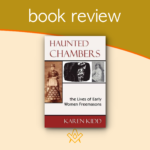 Book Review – Haunted Chambers: The Lives of Early Women Freemasons These women aren't supposed to have existed. But they did. "Haunted Chambers", for the first time ever, presents not only the most complete list of early women Freemasons but also as much detail about their lives as can still be found. By Karen Kidd |
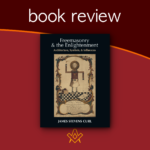 Book Review - Freemasonry & the Enlightenment This superbly illustrated study of Free masonry’s influence on Western culture, especially in the 18th and early19th centuries, has been recognised as one of the most original and important contributions towards a greater understanding of the Enlightenment published in recent times. |
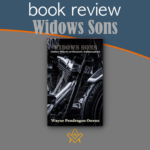 Book Review - Widows Sons: Outlaw Bikers or Masonic Ambassadors Outlaw Bikers or Masonic Ambassadors. Fully recognised and approved by the United Grand Lodge of England, 2018 marked the twentieth anniversary of the creation of the Widows Sons, with 2019 marking the fifteenth anniversary of the Widows Sons starting in the UK. Book by Wayne Owens. |
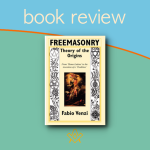 Book Review - Freemasonry - Theory of the Origins This book charts the transformational processes which combine in a peak between the end of the seventeenth and the start of the eighteenth century. By Fabio Venzi |
 Book Review – Robert's Rules of Order: Masonic Edition New Updated Edition with section for online Masonic gatherings! - Experienced legislators, editors, civic leaders, business executives, and club officers all pronounce Robert's Rules of Order the best parliamentary guide in the English language. |
 Book Review - The Point Within the Circle This is a very unusual book on Freemasonry. It takes the reader on a journey through some of the esoteric elements that are integral to Freemasonry's design. It shows how the Masonic temple itself is constructed in accordance with three ancient systems. By Matthew Ridgley Clark |
 Book Review - Famous Freemasons who Changed the World There are 110 biographical entries in the book. Famous people where also Freemasons who changed the world by Kent Henderson |
 Book Review - The Full Spectrum of Freemasonry This book reflects the author’s research interests in Victorian Freemasonry, and the Orders beyond the Craft and provides a better understanding of how the other Masonic Orders have grown and developed in parallel with Craft Masonry by Richard Gan |
 Book Review - Some Masonic Musings The papers in this volume cover fifty years of research and thought. They were often also produced to fill out programmes for Lodges of Research and there is a degree of repetition and overlap. by Aubrey N. Newman |
 Book Review - The Siblys of London The colourful life of Ebenezer Sibly; a quack doctor, plagiarist, and masonic ritualist in late eighteenth-century London; by Dr Susan Mitchell Sommers |
 Book Review – We Three or Three Such as We No review can begin to touch the sensitivity with which the people therein have been described, nor the extent of the layers and levels of their esoteric lodge experience, something that sadly few will ever achieve |
 Book Review - In The Steps Of The Templars This comprehensive, authoritative, up to date history of the Masonic Knight Templar and Knights of Malta covers everything from the crusading Orders of Knighthood from which the modern Masonic Templar Orders |
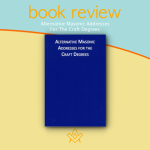 Book Review - Alternative Masonic Addresses For The Craft Degrees Do you get asked to give an address at your lodge ? Are you looking for an alternative address ? Then take a look at this collection of alternative masonic addresses for the craft degrees prepared by Lewis Masonic |
 Book Review – The Freemasons Stopped in the Middle of the Ford This book tries to approach Freemasonry from different sides; not so much to explain how he understands it as to encourage the reader to seek his own answers – on its methods, its organization, and its meaning. By Peter Bu |
 Book Review - Making A Daily Advancement In this work the author brings together a whole range of Masonic facts including the origins of our customs, our rituals and our practices, by Michael Lawrence |
 Book Review - A Glossary Of The Craft And Holy Royal Arch Ritual Terms This handy little book describes the origins and original meanings of the sometimes obscure words used in our ritual by Brigadier A.C.F. Jackson |
 Book Review - A Path to Providence: The Creation of the Middle Chamber Program Masonic Education has regrettably been reduced to teaching protocol, traditions, and catechism while ignoring the esoteric essence of the ritual. By Shaun Bradshaw (Author), Ben Wallace (Author), Flynn Ryan (Cover Art) |
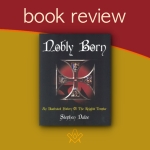 Book Review - Nobly Born: An Illustrated History of the Knights Templar The Templars were an unusual Order in that they lived both an active and contemplative life; making them effectively the first warrior-monks in the western world. by Stephen Dafoe |
 Book Review - A Deserving Brother: George Washington and Freemasonry Like several of America’s founding fathers, George Washington was a Freemason. In 'A Deserving Brother', Mark Tabbert presents a complete story of Washington’s known association with Freemasonry. |
 Book Review - Taken by Surprise Never again will a Freemason be caught out by a last-minute request to make a response. - Taken by Surprise by Yasha Beresiner |
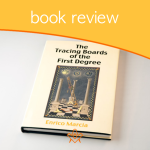 Book review - The Tracing Boards of the First Degree The Tracing Board is a picture that encloses the quintessence of the ritual of the Degree and transmits it through symbols and images. By Enrico Marcia |
 Book Review - The Other Brotherhood: When Freemasonry Crossed the English Channel An excellent book, being perfect for Freemasons and non-Freemasons alike who want to explore the origins of Freemasonry and to examine how it influenced French thought in the eighteenth century |
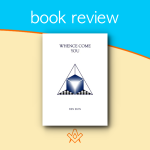 The message of the book is essentially one of Freemasonry being unequivocally esoteric – spiritual – and that is something that many Masons may balk at but it is a topic that needs discussing rationally. |
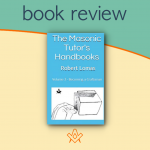 Book Review - Becoming a Craftsman -The Masonic Tutor's Handbooks: Volume 3 Becoming a Craftsman -The Masonic Tutor's Handbooks: Volume 3 - The relationship between a Fellowcraft and their Master is how the traditional wisdom of our Craft is passed on. |
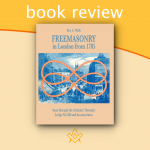 Book Review - Freemasonry in London from 1785 This book is a well-researched study by a competent masonic scholar who has welded links from the changing scenes that arose in an era in which the most important step forward in organised Freemasonry was taken… |
 Book Review - The Masonry of the «Moderns»: History and Rituality The Masonic ritual world dates back to the 18th century, both from England and from France, which is still our most valuable reference. |
 Book Review - Meditations of a Flawed Ashlar Many readers will probably be familiar with Bill Hosler – he is a much-respected and veteran American Freemason and a regular contributor to the Midnight Freemasons blog. |
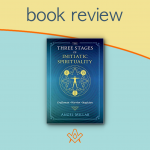 Book Review - Three Stages of Initiatic Spirituality - Angel Millar Angel Millar is a well-known lecturer on Freemasonry, initiation, and esotericism as well as an artist and student of the martial arts. The author of several books. |
 Book Review - The Rite of Seven Degrees This book examines the deeply esoteric eighteenth-century Rite of Seven Degrees. |
 Book Review - The Green Book of the Elus Coens The Green Book of the Élus Coëns is the most fascinating insight yet into the secrets and mysteries of the eighteenth century’s most esoteric of masonic societies – The Order of Knight-Mason Elect-Cohens of the Universe. |
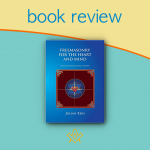 Book Review - Freemasonry for the Heart and Mind Freemasonry for the Heart and Mind: A glance at Freemasonry during the Enlightenment and the American and French revolutions. |
 Book Review - The Masonic Pageant The Masonic Pageant is published by Cornerstone Book Publishers and features a nice foreword by Chris Hodapp, 33°. |
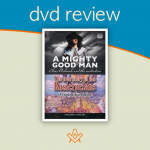 DVD Review - A Mighty Good Man A drama-documentary of the life of Elias Ashmole including a reconstruction of the first personally recorded Free Masonic Initiation into a Lodge anywhere in the world. |
 It is reasonable to suggest that when published, Invisibles was the most comprehensive, comparative study, to date, of the Rosicrucian mega-meme. |
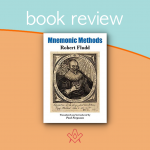 Book Review - Mnemonic Methods Within this book 'Mnemonic Methods by Robert Fludd', translator Paul Ferguson introduces us to the English translation of two of Fludd's short treatises on memory |
 Book Review - English Illuminati This book gives us a deep look into the European occult revival of the late nineteenth century and some of its key figures… |
 Book Review - Emulation: A Ritual to Remember How does one begin to review a masonic classic which has faithfully served generations? Perhaps starting with the title Emulation: A Ritual to Remember. |
 Book Review - The Rosslyn Hoax Robert Cooper asks, would you like to know the truth about Rosslyn Chapel ? |
 Book Review - Mastering Masonic Ritual Mastering Masonic Ritual is focused on preparing for a successful and fulfilling journey around the floor to the Chair. |
 Book Review - Companions of Christian Rosenkreutz A review of Companions of Christian Rosenkreutz - Collected Papers 2008-2016 |
 Book Review - Freemasonry: Material Moral and Mystical A review of Freemasonry: Material, Moral, and Mystical by Tony Baker |
 Book Review - The Masonic Tutor's Handbook 2 A review of The Masonic Tutor's Handbooks: Vol 2 - Freemasonry - After Covid 19 by Robert Lomas |
 Book Review - Three Distinct Knocks - John Meeks "Why don't these new guys come back?" This is the question I often hear; and it is this same question that pushed me to write this book. - John Meek |
 Book Review - Soldier and Mason Soldier and Mason: The Life of Charles Warren Napier-Clavering |
 Book Review - Bohemian Masonic Glass A completely unique narrative publication mapping the phenomenon of glass production for the needs of Masonic lodges |
 Book Review - This Chequered Existence Gerald Reilly reviews this new book covering the near-modern history of Freemasonry in England and Wales during the 20th-century. |
 Book Review - The EA, FC, MM Handbooks Essential reading for every Entered Apprentice, Fellowcraft, and Master Mason - these seminal books by J.S.M Ward are what every Mason needs! |
 Book Review - The Freemasons who won America's War for Independence Find out who were the Freemasons who won America's War for Independence |
 Book Review - Black Freemasonry: From Prince Hall to the Giants of Jazz A book review of Black Freemasonry: From Prince Hall to the Giants of Jazz by Cécile Révauger |
 Book Review - Crime and the Craft Crime and the Craft reveals that the Freemasons have been involved in treason, murder, conspiracy, fraud, and scandal from the time of the English Civil War to the 1980s. |
 Book Review - Focus on Ric Berman Focus on Ric Berman a British historian who writes about the intersection of freemasonry, politics and society. |
 Book Review - The Temple That Never Sleeps Freemasons and E-Masonry Toward a New Paradigm |
 Book Review - The Secret School of Wisdom The Authentic Rituals and Doctrines of the Illuminati is a pioneering text |
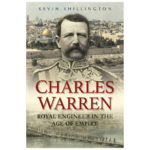 Book Review - Charles Warren: Royal Engineer in the Age of Empire Sir Charles Warren, the Police Commissioner who failed to catch 'Jack the Ripper' |
 Book Review - Freemasonry and the Press in the Twentieth Century During the latter part of the twentieth century, the Press and Freemasonry had a tense relationship. |
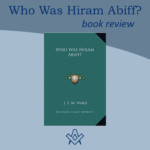 Book Review - Who was Hiram Abiff? Every Freemason must have at some point asked himself the above question. |
 The new MBC will have a different business model than the old. |
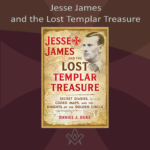 Book Review - Jesse James and the Lost Templar Treasure Lost Templar Treasure: Secret Diaries, Coded Maps, and the Knights of the Golden Circle |
 Book Review - The Enigma of the Royal Arch Royal Arch What's it all about |
 Review of the new book The Craft by John Dickie, Professor of Italian Studies at University College London |
 Book Review - For Hills and Valleys For Hills and Valleys, Mobile Schools and Republicanism in the Zêzere Valley By Aires Henriques |
 DVD Review - 33 and Beyond: The Royal Art of Freemasonry 33 & Beyond: The Royal Art of Freemasonry, is perhaps the most fascinating and important documentary ever made on the on the subject matter of Freemasonry. |
 Book Review - History of Freemasonry in Bessarabia Book review by guest reviewer Gheorghe Bichicean on the History of Freemasonry in Bessarabia by Alexandru Rufanda |
 A new Board Game based on The Freemasons |
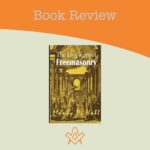 Book Review - The Lost Keys of Freemasonry Introduction to The Lost Keys of Freemasonry by Manly P. Hall |
 A system of morality – Aristotle and the making of the ritual by Professor G.R. Boys-Stones |
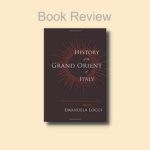 Book Review - History of the Grand Orient of Italy In depth book review in to the History of the Grand Orient of Italy by the author |
 Book Review – Freemasonry It's Hidden Meaning Youtube Book review by Baruti KMT-Sisouvong |
masonic knowledge
to be a better citizen of the world
share the square with two brothers

click image to open email app on mobile device
